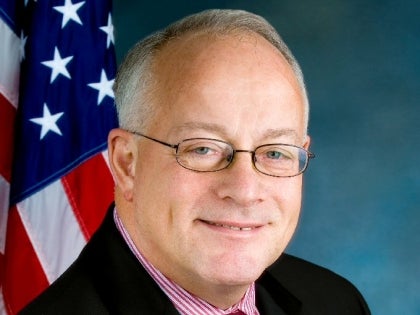
State Senate And State Assembly Urges "time Out" On Federal Passport Plan Impacting Western And Northern New York
Both the New York State Senate and the New York State Assembly have gone on record in supporting a delay being considered by Congress for implementing a requirement that travelers of all ages, including U.S. citizens, produce a passport or other equivalent form of identification when crossing the border from Canada into the United States.
The legislative resolutions sponsored by Senator Dale M. Volker (R-C-I-Depew) and Assemblyman Robin Schimminger (D-C-I-Kenmore), unanimously passed by the Senate and Assembly this week, call on Congress to postpone implementation of the Western Hemisphere Travel Initiative (WHTI), giving the federal government more time to consider some other form of documentation that would meet security needs but be cheaper and easier to get than a passport.
Assemblyman Schimminger, chairman of the Assembly Committee on Economic Development, Job Creation, Commerce and Industry, said that the passport plan put forth by the U.S. Departments of State and Homeland Security will hurt cross-border commerce and tourism along the U.S.-Canadian border from Maine to Alaska should it be implemented as presently conceived. "The passport provision would have a huge impact at New York’s 17 land border crossings with Canada, from the Niagara River to the 1,000 Islands-St. Lawrence region to the Plattsburgh area," said Schimminger. "Every one of the 1.9 million New Yorkers who cross the border into Canada each year, including infants and young children, would need a passport, a NEXUS or FAST card, or an equivalent travel ID to re-enter the U.S., since birth certificates and driver’s licenses would no longer be valid forms of identification at the border. In addition, the 2.3 million Canadians visiting New York State annually would also have to present comparable documentation upon entry into the U.S."
"We concur with the Federal Government that we must do all we can to ensure the security of our respective borders," said Senator Volker, Chairman of the Senate Committee on Codes. "However, the program that will be implemented for those who enter or return to the United States could have long-term economic ramifications for both or our countries, as well as stymie personal travels to and from our neighbors to the north. It is why I firmly believe that we must take a look at alternative programs that will be less onerous to the traveler as well as for the trucker."
As part of the U.S. Intelligence Reform and Terrorism Prevention Act of 2004, the Western Hemisphere Travel Initiative (WHTI) imposes new requirements for entering or returning to the United States. Anyone entering the U.S. from Mexico, Canada, Bermuda, the Caribbean or Central and South America, must present secure travel documents establishing their identity and nationality, as must all U.S. citizens returning home from these lands. These requirements are currently slated to apply to air and sea travel beginning January 1, 2008, and to land border crossings a year later. Last month the U.S. Senate approved extending these deadlines at least 17 months via an amendment attached to a broader immigration reform bill passed by that body, while several bills calling for a similar WHTI delay are pending in the House of Representatives.
"The security of the border is essential, and so, too, are efficient and flexible border crossings," Schimminger and Volker said. "Emerging bi-national tourism efforts in the Niagara region are threatened by the ‘passport plan,’ as many prospective visitors may very well decide to vacation elsewhere rather than go through the hassle and expense of obtaining passports in order to be able to visit both sides of Niagara Falls. Absent knowing how the plan will be implemented, convention planners reportedly have been hesitant to book events in tourism destinations all along our shared border. Likewise, the burgeoning trade-driven commercial development – and attendant job growth – on both sides of the Niagara River is being endangered by this ill-considered proposal. American and Canadian studies have projected the cross-border economic damage stands to be in the billions of dollars"
The lawmakers noted that the initial cost of U.S. passports for a family of four would be $358, and would be as much as $598 if the passports had to be acquired on an expedited basis for travel on short notice. An alternative People Access Security System, or PASS, card now also being considered could still cost as much as $50 per person.
"For those of us who live along the U.S.-Canadian border, this is also a quality of life issue. Many residents of Western New York and Southern Ontario frequently make spontaneous day trips across the bridges to attend a sporting or cultural event, to shop or dine, to ski or play golf, or simply to visit family and friends," Volker and Schimminger stated. "We certainly want to make sure that our borders are secure, but we also want to ensure a free flow of neighbors, tourists and commerce in cross-border communities like ours. In this instance, delay is a good thing as it means Washington will have the time to get it right."
- 30 -